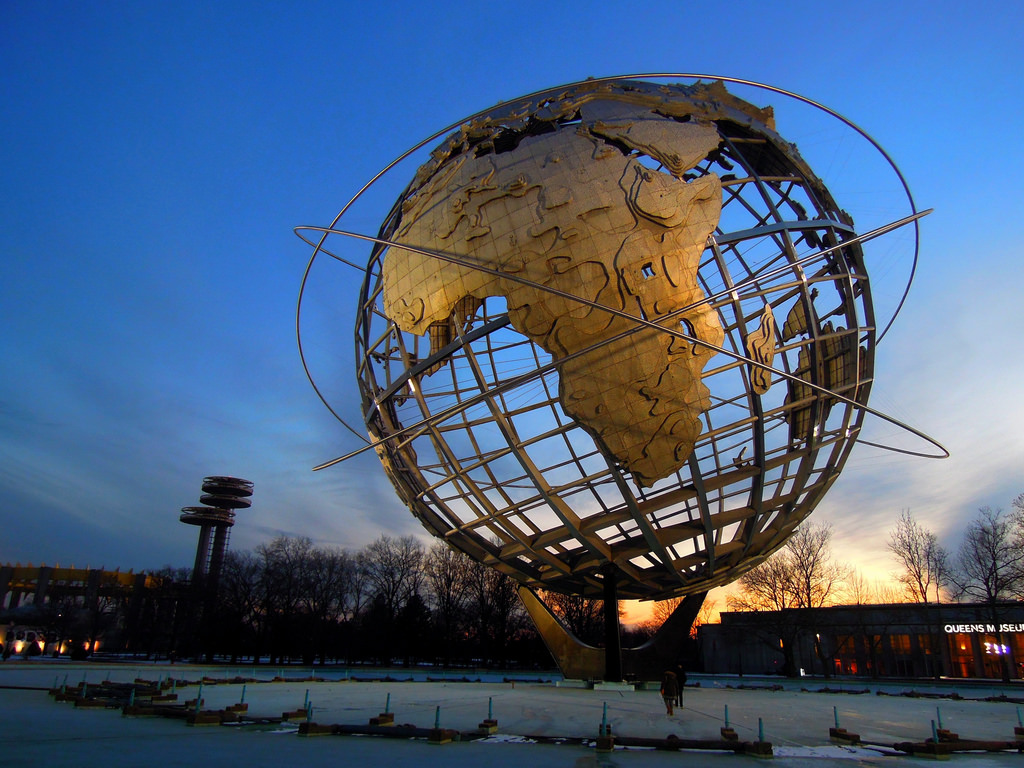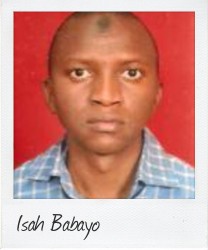“Youth as an agent of peace in Nigeria”
August 31The modern world is becoming smaller, integrated and technologically more advanced. It is also becoming fragmented, less peaceful and unsafe for present and future generations, argues Isah Babayo, 28, a Correspondent from Gombe in Nigeria, who offers suggestions for building a culture of peace.
The world today is passing through an environment full of tension, violence, injustice, reduced tolerance and disrespect for human rights. The concern of humankind for peace can be assessed by taking into account the fact that religions, scriptures and several religious ceremonies are committed to the cause of peace. All of these advocate an elimination of conflict.
The most gifted men and women have toiled since the beginning of civilization to end conflict and warfare without much evident success. Fix your eyes upon the globe as it comes before you day after day. Conflict and carnage seem everywhere: Syria, Myanmar, Afghanistan, Iraq, North Korea, Chechnya, the Philippines, Thailand, Kashmir, Nigeria, Somalia, Libya, Southern Sudan and Congo.
In my view, peace is the feeling that all’s right with the world. When everyone around me in my family, my circle of friends and my neighborhood is happy, eager to love, accept and relate… I feel at peace. In today’s world, peace and harmony face various threats: terrorism, regional imbalance, economic disparity, and social inequality.
However, I belong to a country that is small and poor but rich in culture and natural diversity. I have experienced the murder of a family member, deaths of members of my community, and thousands of fellow countrymen killed a civil war. Boko Haram attacks and other blatant activities happened, but we learned that violence is the wrong way to solve our conflicts. Tolerance and dialogue let us achieve accords to peacefully work together, to reduce inequalities and rebuild the confidence between us.
I volunteer as the North East Nigeria Representative of African Union Students’ Council, and I vowed to myself to make the most of such a respected role within my region and community, as well as in the nation. I visited an Internal Displaced Persons Camp and I witnessed the harsh truth of the life of children in Borno, Yobe and Adamawa states who are victims of Boko Haram, and emphasised how lucky we are to live in Nigeria. Most recently I took up the fight to help the Bring Back our Girls campaign. I co-led our school in a justice march, taking tangible action, to speak out on behalf of the North East students, our sisters, who have been stripped of their voice.
As a young leader, I can see subtle changes in thinking that everyone needs to adopt to bring us closer to a culture of peace. For example, we need to update our 20th century idea of putting aside cultural differences with an attitude of tolerance. In the new millennium, we must realize true peace requires a spirit of appreciation, not an attitude of tolerance. True peace will come only when we stop putting aside our differences and learn to embrace them. It is only when we appreciate and embrace our differences that we realise living united in diversity is not a contradiction of terms but rather a state of peace.
Youths can play an active role in fostering peace by forming a new programmes of peace missionaries and NGOs to network at the grassroots, concentrating on value education and spiritual renewal among children. In the area of ethnic development, the youths of different ethnic groups can forge links between cultural minorities to share values, culture and tradition handed down from generation to generation. Youths in political development can work to end violence and foster peace, engage or join political awareness building, or advocate for reform in bureaucracy to ensure good governance, accountability, transparency and citizenry participation.
On the international scene, the youths can become peace ambassadors for their respective countries, promoting exchange programmes in education, culture, science and technology, sport, tourism and business in the pursuit of maintaining peace among diverse cultures.
We are the youth of today and the leaders of tomorrow. Youth leaders of the present have much to offer in advancing a culture of peace. Given tools and the opportunity, we can change the world while we are still young.
It is time for the full development of the capacities and quality of life of all citizens on Planet Earth. The peaceful and prosperous society we dreamed of with hope and love is waiting for us in the 21st century! Then, the 21st century would be a century of tolerance, peace and freedom from conflict, so let’s open our minds and horizons, share ideas, interests and values, and build cooperative relations to enrich a new culture of peace for the welfare of future generations.
Reach me on Twitter @isahguru
photo credit: SamismagiC Unisphere via photopin (license)
…………………………………………………………………………………………………………………
About me: My name is Isah Babayo, currently studying Educational Administration and Planning at Federal University, Kashere, Gombe State. I’m an award winning essayist, a writer who is devoted to the best on the fiction and non-fiction essay. I have keen interest in all aspect of journalism. Also I’m good in writing articles, essays and have strong leadership, personnel skill and community services experience in youth and women development.
…………………………………………………………………………………………………………………
Opinions expressed in this article are those of the author and do not necessarily represent the views of the Commonwealth Youth Programme. Articles are published in a spirit of dialogue, respect and understanding. If you disagree, why not submit a response?
To learn more about becoming a Commonwealth Correspondent please visit: http://www.yourcommonwealth.org/submit-articles/
…………………………………………………………………………………………………………………





